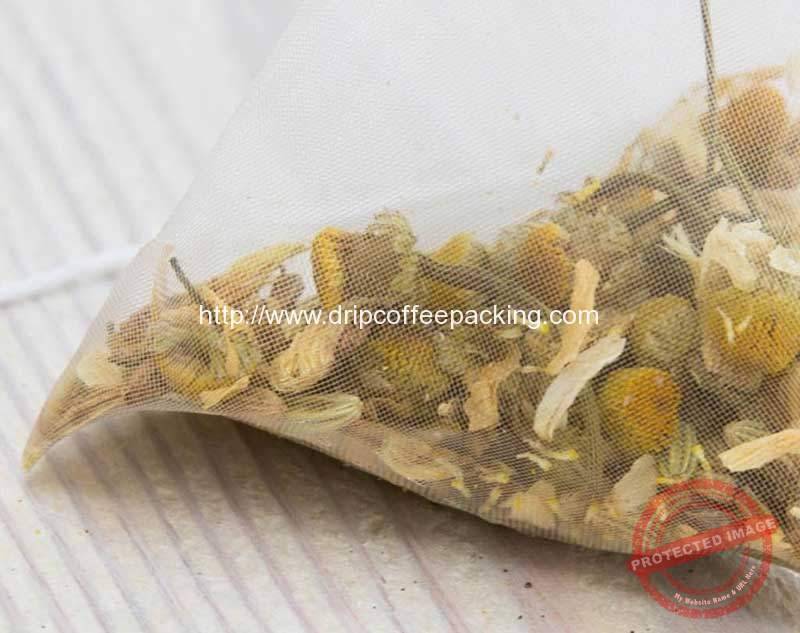What is Real Tea Bags Material
Here’s what happened: I was making tea one day, waiting for my water to get hot, and I started reading the box. It touted the fact that the company didn’t use “silky” plastic tea bags, which prompted my the question, “Wait… silky tea bags are plastic tea bags?”
I’d used “silky” or “mesh” tea bags before, and as someone who is turned off by the idea of eating heated plastic, I never made the connection that “silky” didn’t actually mean silk, and “mesh” isn’t really a specific thing at all. More put off by the fact I’d been had than anything else, I wanted to find out if my alarm about using plastic tea bags had any real basis to it.
At first blush, “silky tea bags” sound like drinkable luxury. Often pyramidal in shape, this type of tea bag is supposed to have higher quality — sometimes even whole leaf — tea inside, a departure from the “dust” in most tea bags. If the quality isn’t higher, the tea is definitely more colorful. The see-through mesh allows you to view what looks like edible potpourri.
Tea companies are very forthcoming in the pains they’ve gone through to adopt such an innovative design. Boasts one website, “In 2000, Revolution started a full-scale uprising, overthrowing the paper tea bag in favor of the first flow-through Infuser bag.” Another site, Tea Forte, explains adopting the silky tea bag because “[They] wanted to create a total sensory and emotional experience that was relevant to life today.” What many of these sites don’t mention is that these silky tea bags, (or “sachets,” or “infusers,” or “sculptural works of art,” etc.) are plastic.
“If the question is, ‘As the polymer goes through that transition state, is it easier for something to leach out?’, the answer is yes.”
The idea of a plastic tea bag might be unpalatable for folks for a number of reasons, the most clear-cut being the contribution to landfill waste, but additionally because heating plastic can rouse alarm in consumers. That’s probably why tea companies like to describe their silken sachets as a quality compromise for loose leaf lovers who “are switching to [mesh tea bags] as their lives get more hectic,” instead of emphasizing “get the plastic hot and then drink the thing it was in.” For these reasons, some tea companies like Numi even use their lack of plastic tea bags as a selling point.
Could plastic tea bags also be bad for our health? They are most commonly made from food grade nylon or polyethylene terephthalate (PET), which are two of the safest plastics on the scale of harmful leaching potential. Both have very high melting points, which offer some assurance to consumers, as one would think the melting point of plastic is the temperature at which one would need to worry about accidentally eating it.
There is another temperature point for plastics, though, that we may need to worry about, called the “glass transition” temperature (Tg) . That is the temperature at which the molecule in certain materials such as polymers begin to break down. As a rule, the Tg of a material is always lower than the melting point. In the case of PET and food grade nylon (either nylon 6 or nylon 6-6), all have a Tg lower than the temperature of boiling water. For example, while the melting point of PET is 482 degrees Fahrenheit, the Tg is about 169 degrees. Both nylons have a lower glass transition temperature than PET. (Remember that water boils at 212 degrees.) This means the molecules that make up these plastic tea bags begin to break down in hot water.
“If the question is, ‘As the polymer goes through that transition state, is it easier for something to leach out?’, the answer is yes,” said Dr. Ray Fernando, professor and director of polymers and coatings at Cal Poly San Luis Obispo. “However, just because it makes it easier for something to leach out, it doesn’t mean it will.” There seems to be something in the plastic collective consciousness that says there are inherently toxins in all plastics, and when they begin to break down, they will naturally gravitate toward food. “This would only happen if there are potential materials trapped in the substance. What we don’t know is what FDA requirements manufacturers have to meet before they go to market,” said Dr. Fernando.
Company Profile
Romiter Machinery Co., Ltd. is a market leading designer and a manufacturer of coffee powder packing and tea powder packing machine. All our machines equip with reliable brand component. This enables us to provide our customers with continuous high quality tea powder and coffee powder equipment at competitive prices.
Romiter provides a complete coffee powder and tea powder packaging solution, includes Drip Coffee Bag Packing Machine, Instant Coffee Stick Packing Machine, English Breakfast Tea Capsules Filling Sealing Machine, Full Automatic Tea Capsules Packing Machine, Pyramid Tea Bag Packing Machine, Four Header Pyramid Tea Bag Packing Machine, Round Tea Pods Packing Machine, Tea Inter Bag and Outer Bag Packing Machine and Coffee Capsules Filling Sealing Machine.



